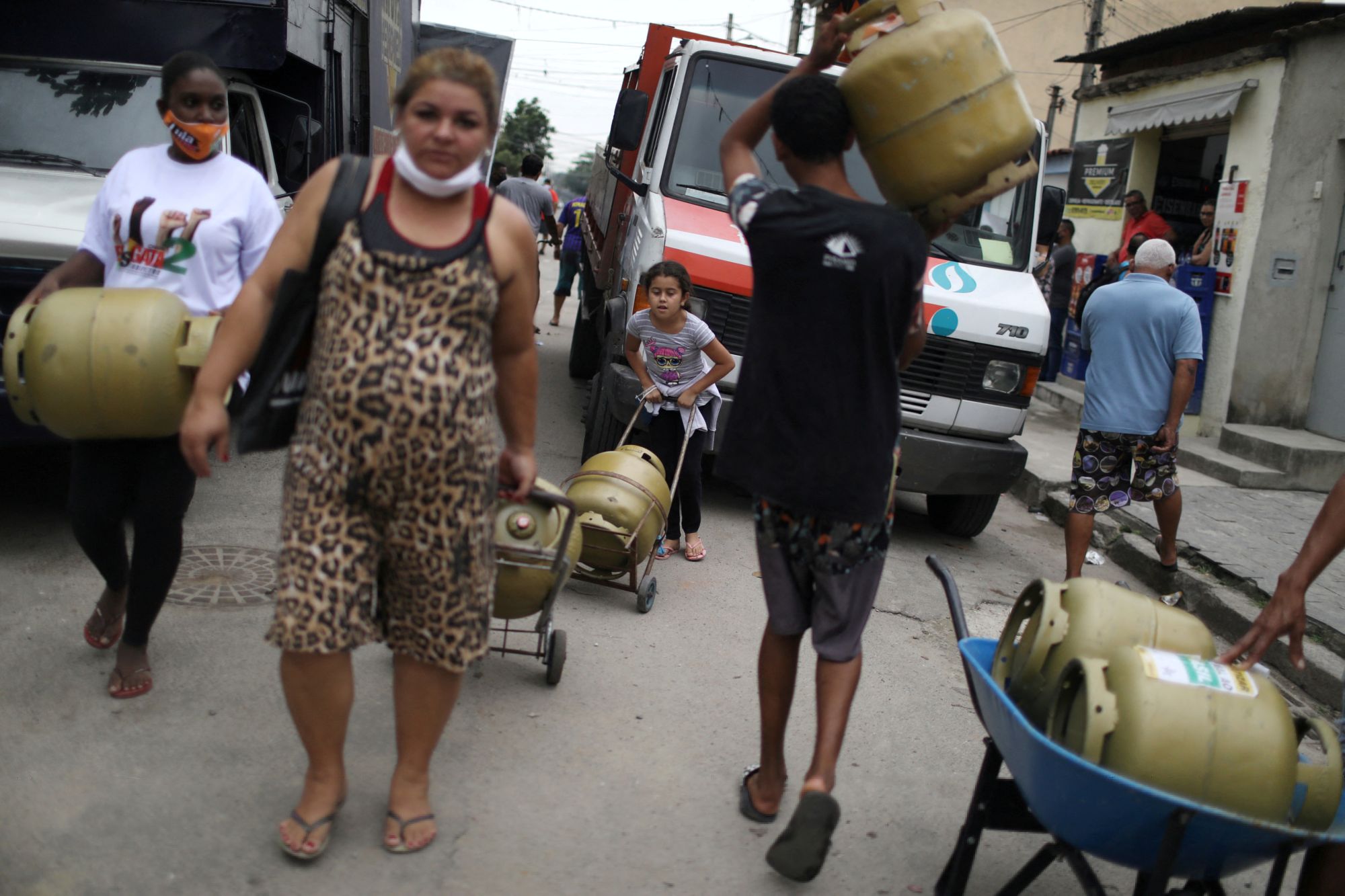Leaving the supermarket with enough to feed her family has become an increasingly tough challenge for Brazilian small business owner Andreia Dias Alvares, 42, as food prices shoot upwards.
Earning less than 1,000 reais ($185) per month, below the national minimum wage, Alvares said her only option was to make cuts to household spending, including reducing meal sizes for herself and her two teenagers.
“Prices have practically doubled. For my family, meat no longer enters the house and I started shopping in stores that sell expired products,” said Alvares, a single mother from São Paulo.
Brazil has been grappling with double-digit annual inflation since September, with consumer prices up by 12% in a year, according to the statistics agency IBGE.
Countries around the world have been facing rising food and fuel costs, largely driven by the impact of the Ukraine war.
In Brazil, lower rainfall has also reduced crop yields and hydropower generation, adding to upward price pressure, said Andre Braz, an economist at Fundação Getúlio Vargas (FGV), a socioeconomic research and education institute.
In São Paulo, prices for staple goods such as wheat flour, beans, rice, cooking oil and milk have risen by more than 20% in a year, according to the Inter-Union Department of Statistics and Socio-Economic Studies (DIEESE), a union-founded research organization.
Meanwhile, average earnings nationwide have dropped 7.2% since 2021, said IBGE, indicating the labor market recovery from COVID-19 has been centered in lower-income occupations.
BUSINESS CHALLENGES
Alvares started a small business making pastries and cakes after she lost her job during the COVID-19 pandemic, but rising costs have eaten into her income.
She has put up her prices by 7% – but her profits are down by 60%.
Despite doing “everything to keep the sales,” including absorbing much of the price rises in ingredients and fuel, she says she has lost many customers as they cut back on non-essential spending.
In Rio de Janeiro, Anna Karolyna Mendes and her family also started a food business during the pandemic, selling packed lunches to low-paid street workers like drivers and delivery staff.
They have had to be flexible to stay profitable.
“Everything became more expensive, (so) we had to reinvent ourselves,” said Mendes.
“When there’s a sale of a specific vegetable, for instance, we buy much more of that product and change the recipes to use the same ingredient.”
A year ago, the family shopped at two markets – now, they shop at five.
“For those who work in the streets … the food we make is cheaper than going to the market on their own,” she said.
While Mendes said she believed they could stay competitive and profitable, Alvares is looking at getting a second part-time job to supplement her income.
“I’m very worried,” she said. “It’s getting more and more complicated to maintain even the basic bills and the situation is snowballing.”
This article was produced by the Thomson Reuters Foundation. Visit them at https://news.trust.org/

